United States country profile
- Published
This page is no longer being updated. It was last updated on 21 January 2025
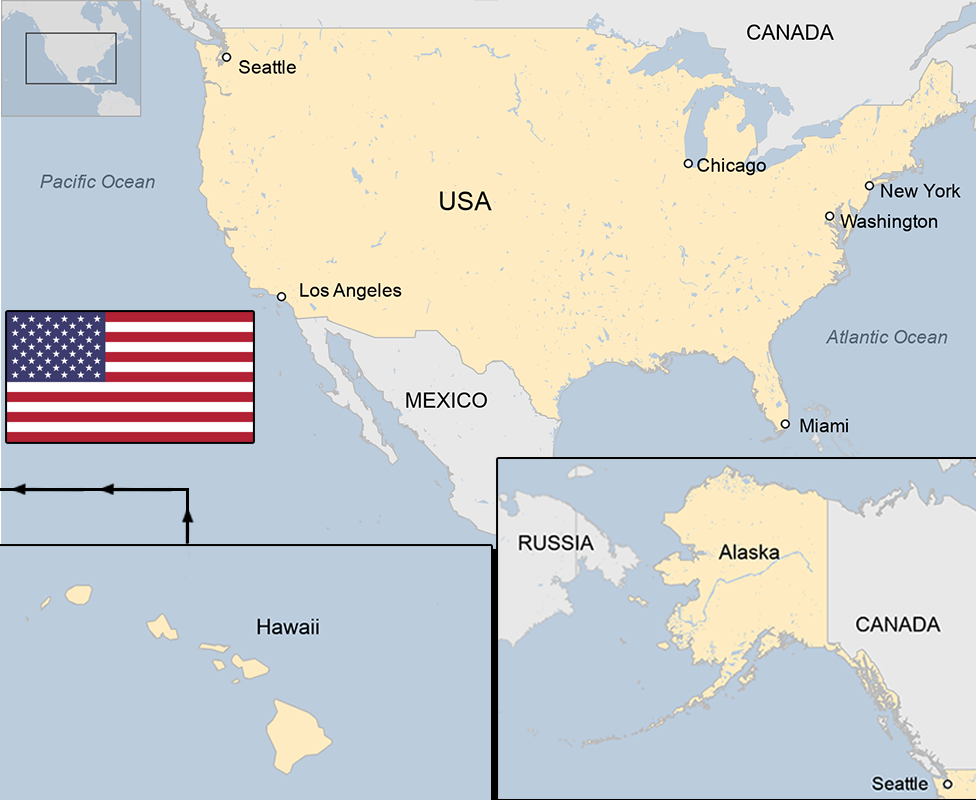
The USA is the world's foremost economic and military power, with global interests and an unmatched global reach.
America's gross domestic product accounts for close to a quarter of the world total, and its military budget is reckoned to be almost as much as the rest of the world's defence spending put together.
The country is also a major source of entertainment: American TV, Hollywood films, jazz, blues, rock and rap music are primary ingredients in global popular culture.
The United States originated in a revolution that separated it from the British Crown. The constitution, drafted in 1787, established a federal system with a division of powers that has remained little changed since its inception.
One of the world's most developed countries, the US economy accounted for over 15% of the global economy in 2023, and its hard power and cultural influence have worldwide impact.
In recent years, the US has seen increasing political polarisation, most notably in January 2021 when supporters of Donald Trump stormed the Capitol in Washington DC in a bid to prevent the peaceful transfer of power, following his defeat in the 2020 presidential election.
Read more country profiles, external - Profiles by BBC Monitoring, external
UNITED STATES OF AMERICA: FACTS
Capital: Washington DC
Area: 9,833,520 sq km
Population: 340 million
Language: English
Life expectancy: 74 years (men) 80 years (women)
LEADER
President: Donald Trump
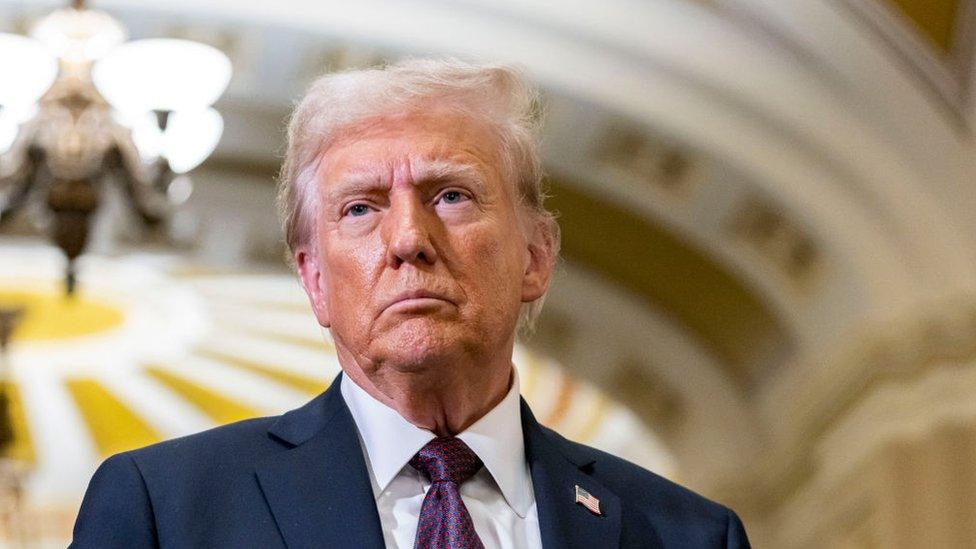
Republican Donald Trump beat Democrat Kamala Harris to win a second term as president in the 2024 election, in what was seen as one of the most turbulent campaigns in recent American history.
Harris had only become the Democratic Party candidate months before, after President Joe Biden withdrew from the race under pressure from within the party.
In his first address as President, Donald Trump said "the golden age of America begins right now," and that the country would "flourish and be respected" under his leadership.
He started his presidency with a blitz of executive orders - directives from the President.
He signed orders to withdraw the US from the World Health Organization (WHO) and the Paris climate agreement - the landmark international deal designed to limit rising global temperatures.
Trump first withdrew from the Paris accord in 2017, before Biden re-entered it in 2021.
Domestically, he declared a national emergency at the US-Mexico border.
President Trump's other announced plans include a move towards a large-scale deportation of undocumented migrants, new tariffs on foreign imports, slashing government spending and cuts to the federal workforce.
MEDIA
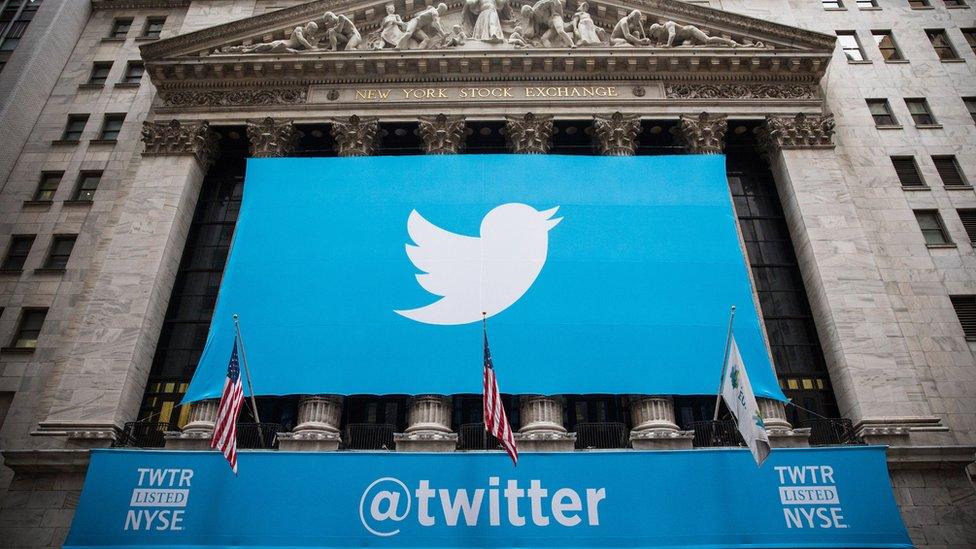
US-based web services such as Google, Facebook and Twitter have transformed the market for media
The US has the most highly-developed mass media in the world. Its dramas, comedies, soaps, animations, music videos and films have a global audience and are staple fare for broadcasters worldwide.
Television is the most popular medium, although the amount of content consumed via live broadcast TV is falling as video-on-demand platforms flourish.
The US is the home of the internet, and access is unrestricted.
Read full media profile
TIMELINE
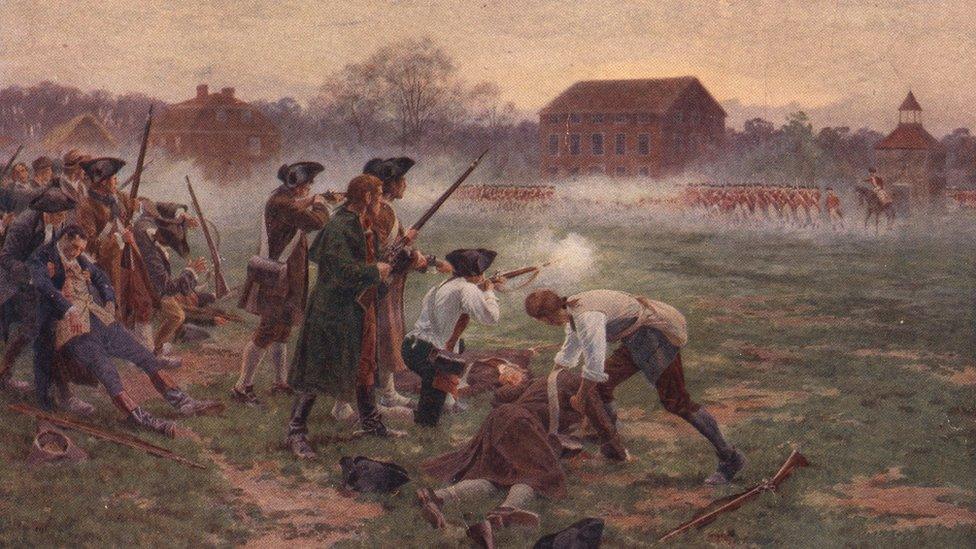
European settlers rebelled against rule from Britain in 1775, starting the War of Independence
Some key dates in US history:
c. 12000BC - First inhabitants of North America migrate from Siberia by way of the Bering land bridge.
11000BC - Emergence of the Clovis culture, believed to represent the first wave of human settlement of the Americas, thought to be the first of three major waves of migration into North America.
9600-1000BC - Archaic period: Sees building of first complex earthwork mounds, such as at Monte Sano, Lower Mississippi Valley, and Watson Brake, Louisiana.
1000BC-1000AD - Woodland period: The Adena and subsequent Hopewell cultures see monumental earthwork architecture and established continent-spanning trade and exchange networks.
750-1350AD - Ancestral Puebloans (also known as the Anasazi) in southwest USA: characterised by grand pueblos and cliff-sited dwellings for defence, with a complex network of communities across the Colorado Plateau such as Mesa Verde and Chaco Canyon.
900-1600AD - Mississippian culture: Characterised by a series of urban settlements in the midwest, east and southeast US, with large, earth platform mounds and satellite villages linked together by loose trading networks. The largest city is Cahokia, Illinois.
1565 - First permanent European settlement in North America - St Augustine, present-day Florida - founded by the Spanish.
1607 - Jamestown, Virginia, founded by English settlers, who begin growing tobacco.
1620 - Plymouth Colony, near Cape Cod, is founded by the Pilgrim Fathers, whose example is followed by other English Puritans in New England.
17th-18th Centuries - Hundreds of thousands of Africans brought over and sold into slavery to work on cotton and tobacco plantations.
1775 - American Revolution: George Washington leads colonist Continental Army to fight against British rule.
1783 - Britain accepts loss of colonies in the Treaty of Paris.
1787 - Founding Fathers draw up new constitution for United States of America.
1803 - France sells Louisiana territories to USA.
19th Century - Resistance by indigenous peoples crushed as immigration from Europe assumes mass proportions, with settlers moving westwards.
1846-48 - US acquires vast tracts of Mexican territory in wake of Mexican War including California and New Mexico.
1861-1865 - US Civil War: Federal forces defeat the Confederate pro-slavery states in the South. Slavery is abolished.
1898 - US gains Puerto Rico, Guam, the Philippines and Cuba following the Spanish-American war. US annexes Hawaii.
1920 - Women given the right to vote.
1929-33 - Some 13 million people become unemployed after the Wall Street stock market crash triggers what becomes known as the Great Depression.
1933 - President Franklin D Roosevelt launches "New Deal" recovery programme which includes major public works.
1941 - Japan attacks the US fleet at Pearl Harbour in Hawaii, precipitating the US entry into World War Two.
1945 - US drops two atomic bombs on Hiroshima and Nagasaki. Japan surrenders.
1947 - US enunciates policy of aid for nations it deems threatened by communism in what became known as the Truman Doctrine. Cold War with Soviet Union begins.
1950-54 - Senator Joseph McCarthy carries out a crusade against alleged communists in government and public life; the campaign and its methods become known as McCarthyism.
1954 - Racial segregation in schools becomes unconstitutional; start of campaign of civil disobedience to secure civil rights for Americans of African descent.
1961 - Bay of Pigs invasion: an unsuccessful attempt to invade Cuba by Cuban exiles, organised and financed by Washington.
1962 - US compels Soviet Union to withdraw nuclear weapons from Cuba in what has become known as the Cuban missile crisis.
1963 - President John F Kennedy assassinated; Lyndon Johnson becomes president.
1964 - US steps up its military intervention in Vietnam. Civil Rights Act signed into law; it aims to halt discrimination on grounds of race, colour, religion, nationality.
1968 - Black civil rights leader Martin Luther King assassinated.
1969 - US astronaut Neil Armstrong becomes the first person to walk on the Moon.
1973 - Vietnam ceasefire agreement signed.
1989 - US troops invade Panama, oust its government and arrest its leader, one-time Central Intelligence Agency informant General Manuel Noriega, on drug-trafficking charges.
1991 - US forces play dominant role in war against Iraq, triggered by Iraq's invasion of Kuwait and ending with the expulsion of Iraqi troops.
1995 - Oklahoma bomb by far-right activists kills more than 160 people.
1999 - US plays leading role in Nato bombing of Yugoslavia in response to Serb violence against ethnic Albanians in the province of Kosovo.
2001 - Co-ordinated suicide attacks on various high-profile targets by the al-Qaeda jihadist group, prompting the US to embark on a ''war on terror'' that includes the invasion of Afghanistan and Iraq.
2003 - Missile attacks on Baghdad mark the start of a US-led campaign to topple the Iraqi leader Saddam Hussein. US forces swiftly advance into central Baghdad.
2008 - Turmoil in the US and international financial markets as major Wall Street investment bank Lehman Brothers collapses and other big US financial players face growing troubles as a result of the "credit crunch".
Barack Obama is elected the first black president of the United States.
2016 - Reality TV host and property tycoon Donald Trump regains the presidency for the Republicans on a populist platform.
2021 - Joe Biden is inaugurated president amid unprecedented security, a week after Trump supporters storm the Capitol in Washington DC.
2022 - US Supreme Court rules there is no constitutional right to an abortion.
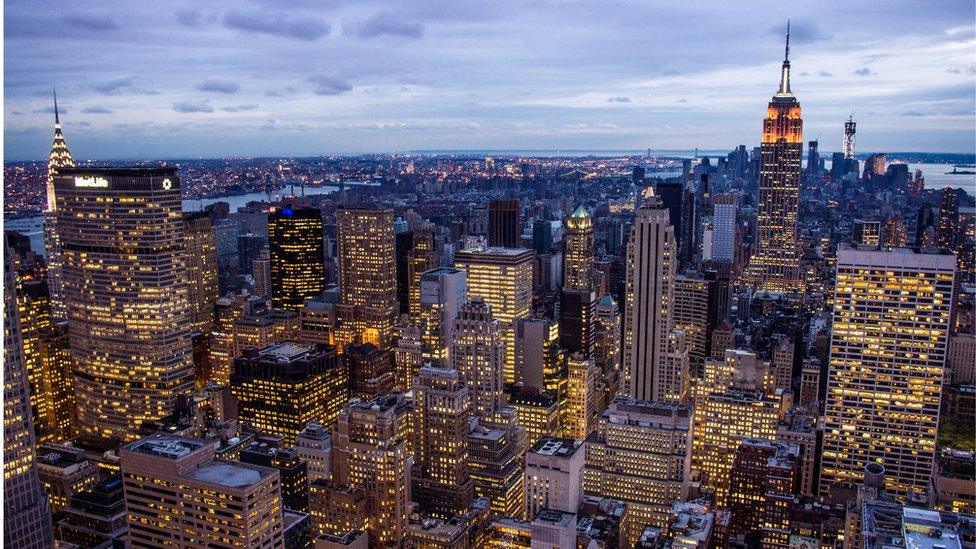
New York City: Commercial capital of the US and global cultural centre
Related topics
- Published11 September 2023
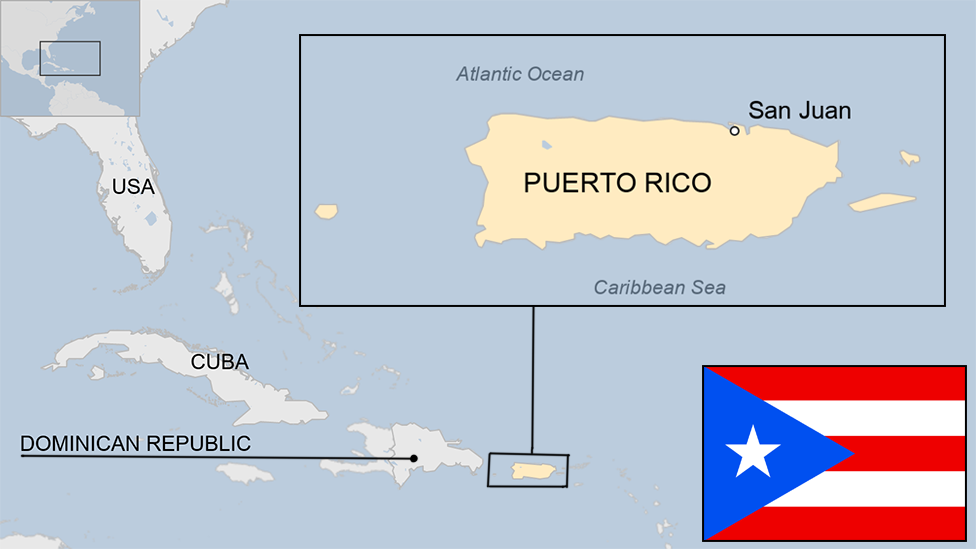
- Published8 January
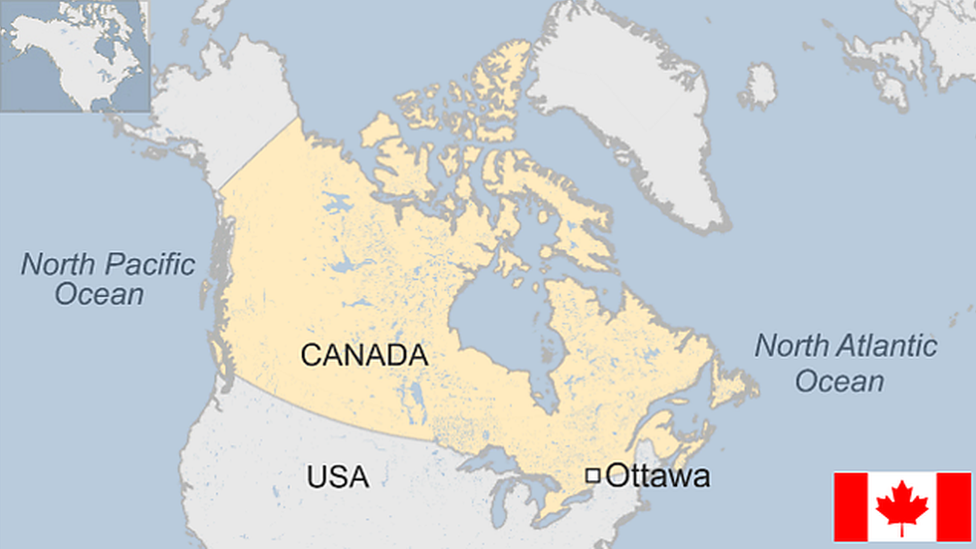
- Published16 August 2023
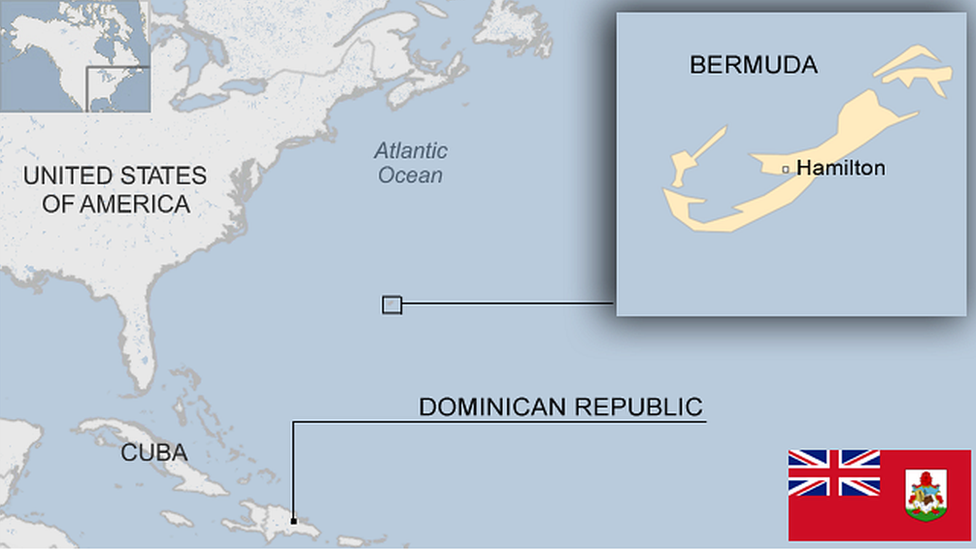
- Published4 August 2023
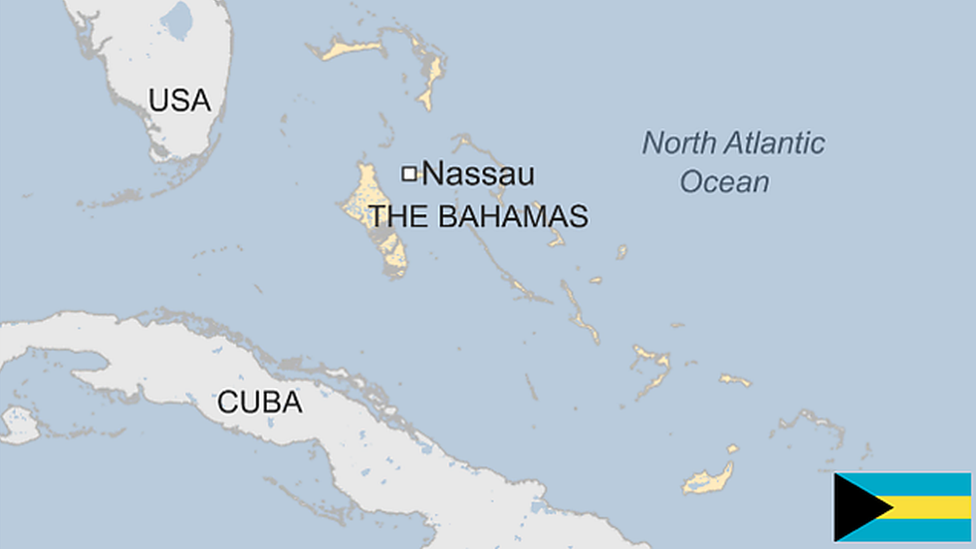
- Published29 August 2023
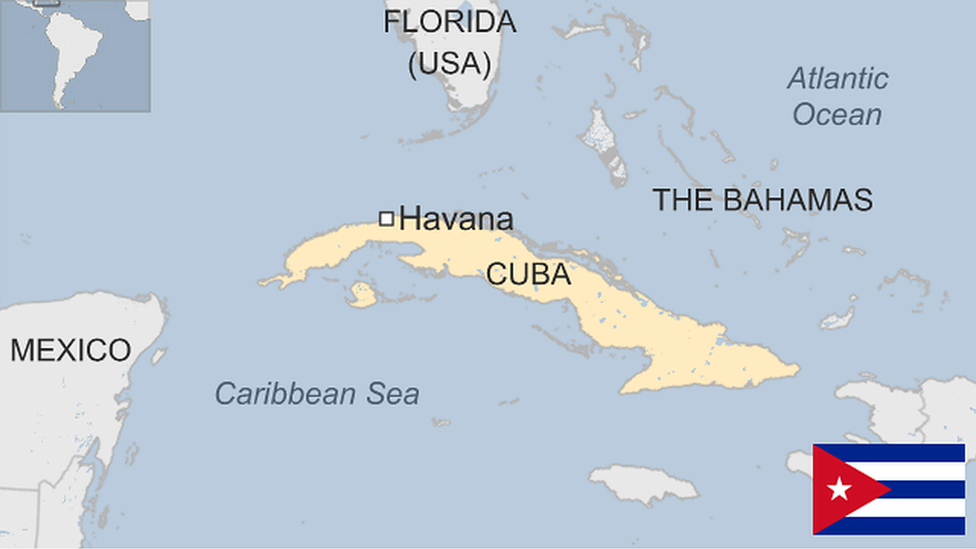
- Published4 October 2024
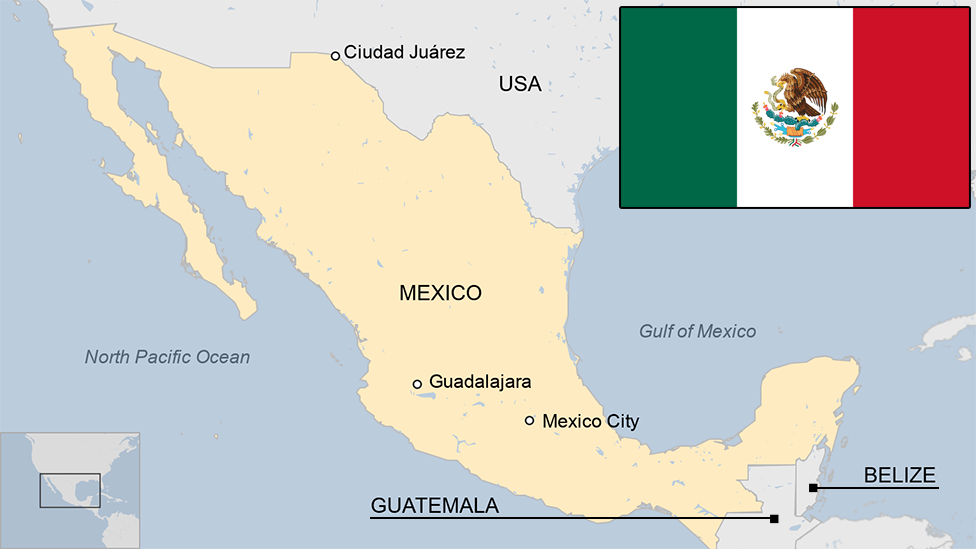
- Published25 March 2024
